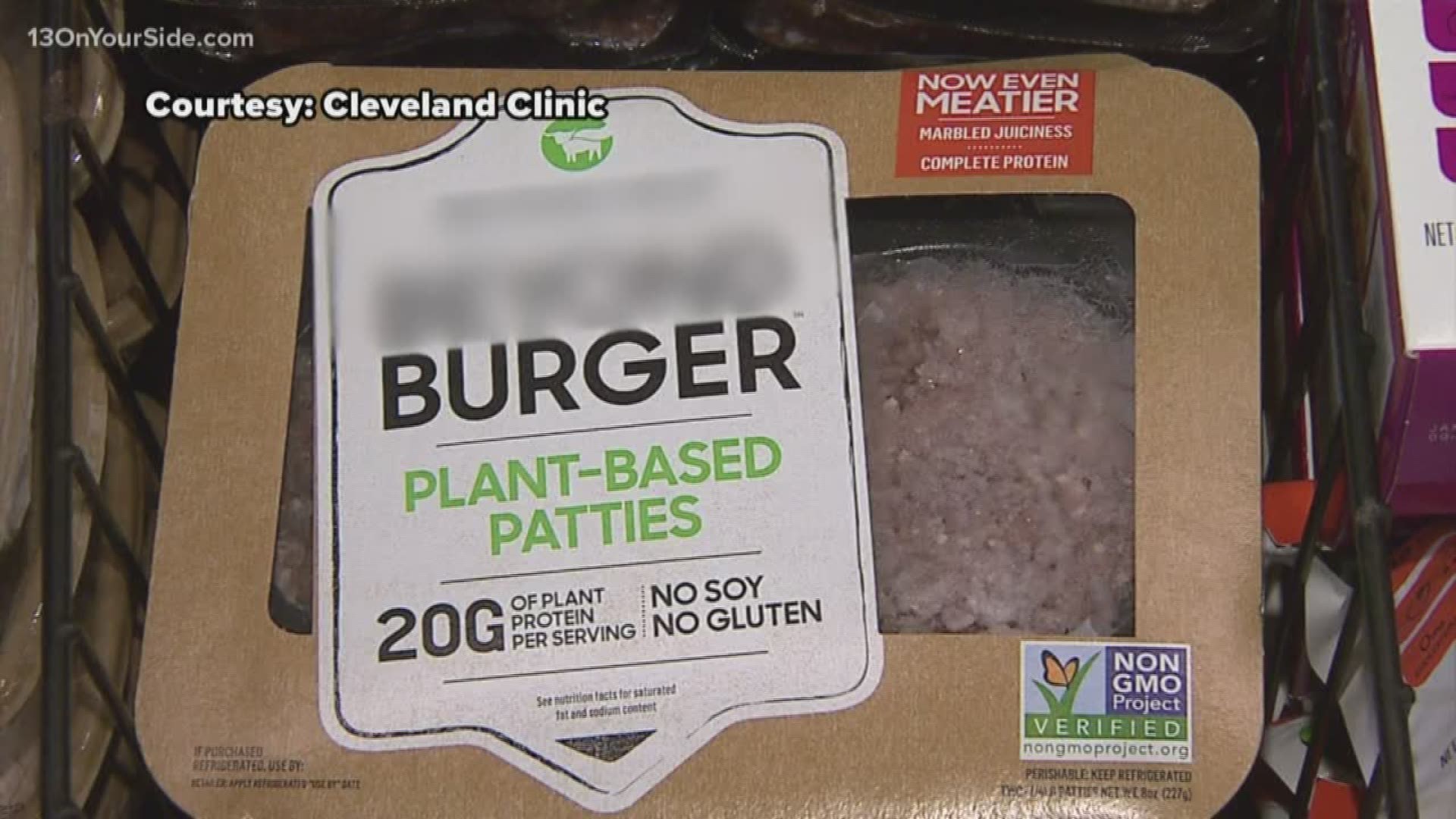CLEVELAND – Burger alternatives that mimic meat are popping up in stores and on menus everywhere.
These products go beyond a simple veggie burger – they taste like meat, feel like meat and even ‘bleed’ red – but they’re actually made with plants.
Cleveland Clinic ‘s Kristin Kirkpatrick, RD, said cutting back on red meat is a good idea, but right now it’s hard to say whether these products are truly healthy.
“We don’t have long term data to figure out what is this really going to do in terms of our health,” she said. “Is this going to improve our health? Are these options going to improve the environment? Of course, the manufacturers of these products say – ‘absolutely!’, and they probably are right based on the fact that maybe we will limit our red meat consumption and instead have some of these products.”
Research suggests eating too much red meat may increase heart disease risk, cancer risk, and even risk of death, therefore diets low in red meat are thought to be best for your health.
Kirkpatrick said burger alternatives may help meat-lovers reduce the amount of red meat in their diet, while still enjoying a product that smells, tastes and has the texture of a hamburger.
Meatless burgers are processed and often made in a lab using plant-based ingredients, like pea protein.
Some products even use beets to make the faux-burger “bleed” red like real meat.
Components of meatless burgers are deemed safe to eat, but may be hard to pronounce and unfamiliar to consumers, which makes some diners uncomfortable.
Kirkpatrick said like all burgers, moderation is key – and that includes what you’re topping it with.
“We can ruin any burger by putting it on a refined gigantic bun, and adding cheese, and all these condiments,” she said. “Sometimes the burger experience itself is lost with health because we’re still adding other things, but I think it’s probably fine to try them out.”
Kirkpatrick encourages consumers to ask questions about where ingredients are being sourced if they’re concerned or confused by components in products that mimic meats.
RELATED VIDEO:
Other stories on 13 ON YOUR SIDE:
►Make it easy to keep up to date with more stories like this. Download the 13 ON YOUR SIDE app now.
Have a news tip? Email news@13onyourside.com, visit our Facebook page or Twitter


